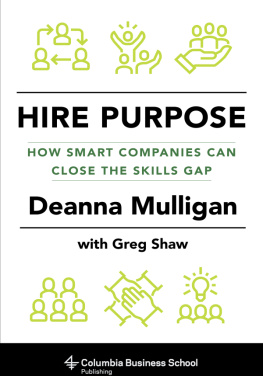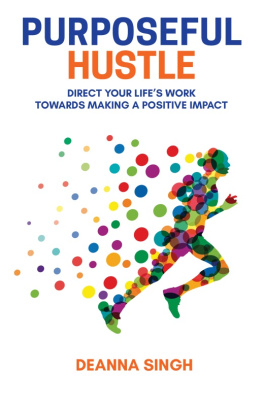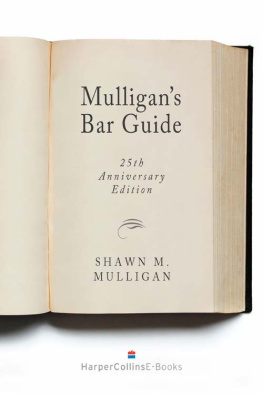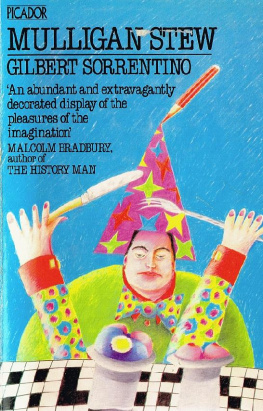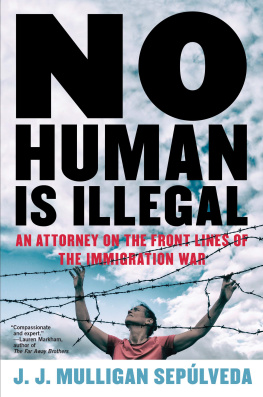Table of Contents
HIRE PURPOSE
PRAISE FOR HIRE PURPOSE
Mulligans compelling book is visionary and highly practical. Her voice is eloquent and draws upon her lifelong quest to lead from a place of meaning and high purpose. This is a roadmap for where business needs to go and how to do it.
Ambassador J. Douglas Holladay, author of Rethinking Success
Mulligans Hire Purpose is a must-read for leaders across the private and public sectors. As we cope with a serious skills crisis and address the challenge of preparing tomorrows workforce for the jobs of the future, she offers clear and compelling actions that those in business, government, and education can take to reform the education and training system to ensure economic growth.
Stanley S. Litow, professor at Columbia and Duke University, innovator in residence at Duke University, and author of The Challenge for Business and Society: From Risk to Reward
In Hire Purpose, Mulligan delivers compelling insights about how to prepare workers for the jobs of the future. Her book is essential reading for anyone who wants to understand why workforce education and training are so essential to our societys continued strength and growth in the twenty-first century.
Roger W. Ferguson Jr., president and CEO, TIAA
HIRE PURPOSE
HOW SMART COMPANIES CAN CLOSE THE SKILLS GAP
DEANNA MULLIGAN
WITH GREG SHAW
Columbia University PressNew York
Columbia University Press
Publishers Since 1893
New York Chichester, West Sussex
cup.columbia.edu
Copyright 2020 Deanna Mulligan
All rights reserved
E-ISBN 978-0-231-55312-4
Library of Congress Cataloging-in-Publication Data
Names: Mulligan, Deanna, author. | Shaw, Greg, author.
Title: Hire purpose: how smart companies can close the skills gap / Deanna Mulligan, Greg Shaw.
Description: New York: Columbia University Press, [2021] | Includes index.
Identifiers: LCCN 2020016750 (print) | LCCN 2020016751 (ebook) | ISBN 9780231179485 (hardback) | ISBN 9780231553124 (ebook)
Subjects: LCSH: EmployeesEffect of automation on. | AutomationEconomic aspects. | Social responsibility of business.
Classification: LCC HD6331 .M886 2021 (print) | LCC HD6331 (ebook) | DDC 331.25dc23
LC record available at https://lccn.loc.gov/2020016750
LC ebook record available at https://lccn.loc.gov/2020016751
A Columbia University Press E-book.
CUP would be pleased to hear about your reading experience with this e-book at .
Cover design: Milenda Nan Ok Lee
Cover art: davooda Shutterstock
To the people of Guardian
Up to 375 million people globally will need to find entirely new kinds of jobs by 2030 because of automation. How workers, governments, and businesses tackle these seismic shifts will define the future of work.
American Factory (Oscar, Best Documentary, 2020)
CONTENTS
WORK IS SOLVING PROBLEMS: MY FATHERS STORY AND MINE
In 1970, my father worked as a shipping clerk in a factory in Detroit, Michigan. It was a decent job, but he saw no path to progress, to learn more, to earn more. One day he read a newspaper ad for a trade school training course in COBOL, IBMs mainframe computer language. My father had dropped out of college after a year, with no technical skills beyond a solid high school education. Furthermore, he knew no one in the computing field, nor many African Americans in professional roles. Still, the ad said companies had such a need for COBOL, that anyone who learned it could land a programming job, whatever their background. So he took a leap of faith.
While my mothers paycheck supported us, my father immersed himself for six months to master unfamiliar techniques, terminology, and procedures of COBOL computer programmingtasks more challenging than any his previous employer had ever trusted him to undertake. After six months, he was recommended for a job shadowing opportunity in a management information systems (MIS) department and demonstrated enough potential to be offered an entry-level programming job. His new career in computing brought our family into Americas middle class.
Hire Purpose contains a bracing analysis of the risks leading economists, futurists, technologists, and business executives see, of automation displacing hundreds of millions of jobs globally, including tens of millions of jobs in the United States alone. We should take these projections seriously, but we should also be willing to probe more deeply. My formal training as a PhD economist makes me skeptical that technological progress will necessarily destroy more good jobs than it creates, but my view is shaped too by this particular slice of my familys own history.
My father loved his work as a COBOL programmer, always describing it as solving problems by making important systems work better for the people who used them, whether for customers or for employees. As I grew up, I noticed so many systems that needed some fixing, it seemed to me like wed all run out of time long before we ran out of work! Ive spent almost twenty years helping to solve business problems, mostly in the technology and information industries, and almost a decade focused on even more complex systems problemsin economic policy, education, national infrastructure, basic research, workforce development, and labor markets. Ive shaped decision making in corporate boardrooms as a senior partner at McKinsey & Company and in the White House National Economic Council under President Obama. Ive also learned from hundreds of front line workers sharing with me the challenge and purpose in their work. I can report this back definitively: were not running out of problems to solve. If a jobless future arrives someday, the fault wont be rising technology or gaps in workforce skills, but shrinking creativity, inclusivity, empathy, and human agency.
WHAT MATTERS: DIGITAL TRANSFORMATION AND HIRE PURPOSE
As I write, the United States and the entire world are in the throes of a devastating coronavirus pandemic, with its myriad consequences still unfolding. In merely ten weeks, from mid-March to the end of May 2020, over 40 million American workers were made unemployed due to severe economic disruptions incurred as part of public health efforts to slow the spread of the virus. More quietly, at a breakneck pace, digital transformations to enable remote working and consuming on a scale previously unimagined have gone from unthinkable to unavoidable. Human health vulnerabilities are tipping the scales towards automation in several fields. Against this backdrop, the business and human lessons Deanna Mulligan distills from leading Guardian through its purposeful and profound change could not be more relevant, and she shares them generously. I do not know what the U.S. economic situation will be as you read Hire Purpose, but I do know this: if work is solving problems, there will be more work to do than ever. Our work ahead is to imagine, invent, fix, build, heal, care, teach, protect, and more. Well be needing all the tools and all the talents.




